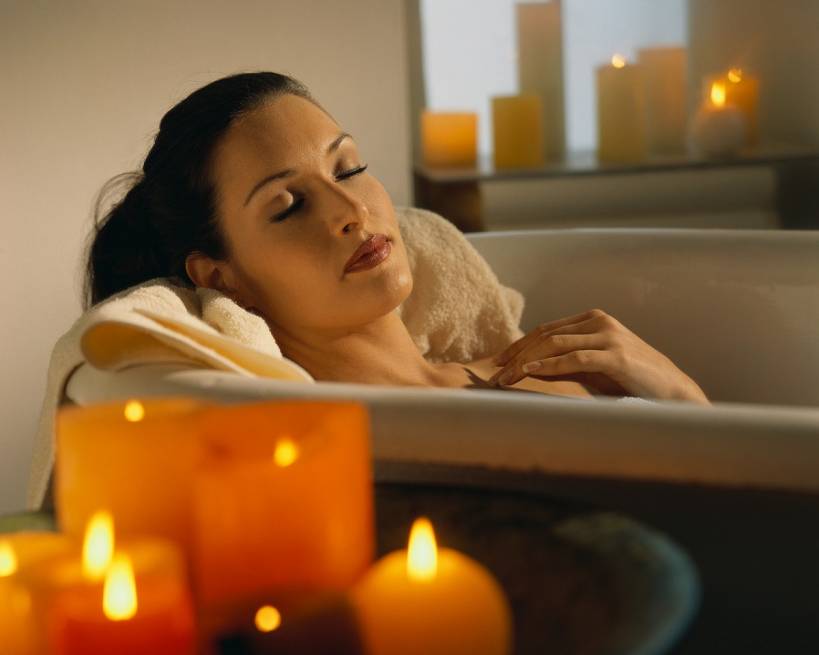At the end of a long day, a bath soak is both luxuriating and relaxing. Adding different ingredients to your bath can pick you up as well as wind you down.
Water temperature is important. If the water is too hot it can encourage broken capillaries (fine red lines on the cheeks and legs. If the water is too cold it can be quite a shock to the system and uncomfortable. Water at body temperature or a little warmer is best.
For an overall relaxed and refreshed feeling, try adding some mineral salts or algae-based liquids. These ingredients effectively stimulate the body’s circulation and can benefit blemished skin at the same time.
If you want something more uplifting, herbal ingredients are best, especially rosemary as a chief ingredient to tone tired skin.
To cool down, choose some cucumber-based products or bath milks. Your skin will always feel rejuvenated and silky afterwards.
Dry skins will benefit more from bath oils tossed through the water. This soothes the skin and leaves it well nourished.
If your skin is feeling slightly oily adding a lemon-based product will help cleanse, tone and restore balance. Strawberry-based products are divine while reducing out natural oil.
When in the bath, check your knees, heels and elbows; these areas can become extremely dry. Use exfoliating friction gloves or a loofah to remove build up of dead skin. When bathing is finished and your skin is dry apply body lotion. The body is still moist and the lotion penetrates effectively while the pores are still open.
Bath Recipes
Bath gels: These are popular. Choose a gel that best suits you and your skin type. Squeeze a cap full into the bath water; the effect is to cleanse and pamper dry, sensitive skin.
Bubble bath: These liquid and powder preparations are a traditional luxury in baths. The foamy bubble substance is perfumed and often makes the water soft and gentle on the skin; however, they are more a cleanser than a beauty treatment.
Bath oil: These float on top of the bath water in little globules which, when they come in contact with the skin, cling, leaving a light film over the surface. Rubbing the oil into the skin will leave it feeling nicely hydrated.
Bath salts or crystals: These are often perfumed and serve to soften the skin and colour-tint the water; they are great for every-day use. Bath salts are filled with minerals that help sooth nerve endings, are detoxifying and aid circulation. They are beneficial for skins suffering from eczema, dermatitis or psoriasis.
Bath milks: These are a rich treatment for dehydrated skins. They contain oils, emollients and other skin-softening ingredients. Soak the skin as long as possible for a softer effect.
Herbal baths: Fresh herbs in your bath are very toning on the skin. Try adding rosemary, thyme or mint; anything, apart from garlic, can be applied. These fragrances help improve the skin’s complexion.
Citrus baths: Squeeze the juice of half a lemon into the bath water. This is a nicely refreshing. If you have an oily-skin problem, use the juice of the whole lemon, and
also add the grated lemon peel. A lemon-based gel is handy to have in the bathroom, but be aware that overuse may make your skin too dry.
In general, a beauty bath at the end of the day is great for our limbs. It rejuvenates the body, soothes the skin and relaxes the mind.


